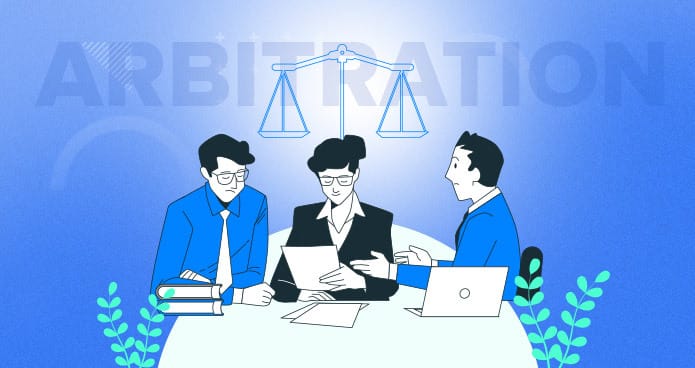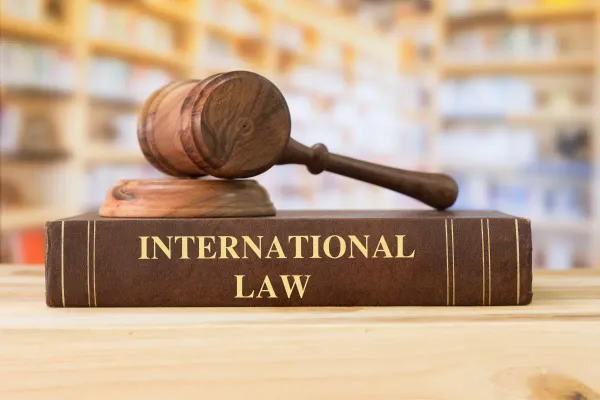Supreme Court Clarifies Courts' Power to Modify Arbitral Awards: Constitution Bench Ruling in Gayatri Balasamy Case

Introduction
The Supreme Court of India recently addressed a long-standing ambiguity in arbitration law: Can courts modify arbitral awards under Sections 34 and 37 of the Arbitration and Conciliation Act, 1996, or are they restricted to setting aside or upholding the award? In a landmark decision delivered by a five-judge Constitution Bench, comprising Chief Justice Sanjiv Khanna and justices Sanjay Kumar and KV Viswanathan, the Court offered clarity on this issue in the case of Gayatri Balasamy v. ISG Novasoft Technologies Ltd., SLP(C) No. 15336-15337/2021. The Court held that while courts cannot generally modify arbitral awards, limited modifications are permissible in specific circumstances.
Background of the Case
The dispute arose when Gayatri Balasamy, a former employee of ISG Novasoft Technologies Ltd., challenged an arbitral award under Section 34 of the Arbitration and Conciliation Act, 1996. The arbitral tribunal had ruled in favor of ISG Novasoft. Balasamy contended that the award failed to consider several critical issues.
The Madras High Court initially modified the award, increasing the compensation. However, a Division Bench later reduced this amount, leading Balasamy to approach the Supreme Court. Given conflicting judgments on whether courts could modify arbitral awards, the matter was referred to a Constitution Bench for clarity.
Statutory Framework
- Section 34: Allows courts to set aside arbitral awards on limited grounds, such as procedural irregularities, jurisdictional errors, or violations of public policy.
- Section 37: Provides for appeals against orders made under Section 34, including those refusing to set aside an award.
Traditionally, Indian courts have interpreted these provisions narrowly to uphold the finality of arbitral awards.
Arguments Presented
Petitioner's Counsel: Senior Advocate Arvind Datar argued that the term "set aside" in Section 34 should be interpreted to include the power to modify or partially annul an award. He emphasized the need for courts to correct manifest errors without entirely annulling awards, citing instances where partial modifications could serve justice more effectively.
The petitioners also argued that international models, such as UNCITRAL, were not strictly applicable to domestic arbitration in India.
Respondent's Counsel: Solicitor General Tushar Mehta, representing the Union of India, contended that Sections 34 and 37 do not grant courts the authority to modify awards. He stressed that "modification" and "setting aside" are distinct actions and that permitting modifications would undermine the arbitration framework. Mehta also suggested that any changes to this effect should be legislated by Parliament.
According to the respondents, permitting courts to modify awards would amount to judicial overreach and undermine the arbitration framework.
Legal Issues
The Court considered several key issues:
- Does Section 34 or 37 empower courts to modify arbitral awards
- If modification is permitted, in what circumstances can it be exercised?
- Can severable parts of an award be modified without affecting the whole award?
- Does Article 142 of the Constitution allow the Supreme Court to modify awards?
Supreme Court’s Decision
In a 4:1 majority, the Supreme Court held that appellate courts have limited power to modify arbitral awards under Sections 34 and 37.
The Court clarified that modification is permissible only in specific situations, that is:
• When the invalid portion of the award can be separated from the valid portion (severability).
• To correct clerical, computational, or typographical errors on the face of the record.
• To modify post-award interest where necessary.
• Under Article 142, the Supreme Court may modify an award in exceptional cases, but this power must be exercised sparingly.
Justice K.V. Viswanathan delivered a dissenting opinion. He held that Section 34 does not allow modification; courts can only set aside an award. He warned that permitting modification would blur the distinction between setting aside and re-writing awards, undermining arbitration’s integrity. He also opposed the use of Article 142 for modifying awards.
Significance of the Judgment
This ruling reconciles conflicting decisions, such as Project Director, NHAI v. M. Hakeem, which held that courts cannot modify awards under Section 34, and Vedanta Ltd. v. Shenzden Shandong Nuclear Power Construction Co., where courts accepted modifications. The judgment strikes a balance between respecting the finality of arbitral awards and allowing minimal judicial intervention to correct obvious errors. It reinforces the principle that arbitration should remain a final and binding method of dispute resolution, with courts stepping in only in exceptional circumstances.
Conclusion
The Supreme Court's decision provides much-needed clarity on the extent of judicial intervention in arbitral awards. While reaffirming the limited role of courts in arbitration, it acknowledges the necessity for minimal modifications in specific situations to uphold justice. This nuanced approach supports India's commitment to promoting arbitration as an efficient dispute resolution mechanism while ensuring that the rights of parties are adequately protected.
To read more, check out our website legalwiki.co




![Paid Internship Opportunity at PPG Legal [Delhi;Stipend Rs 5-15K]-Apply by Jan 31!](/content/images/size/w600/2026/01/Internship2.webp)